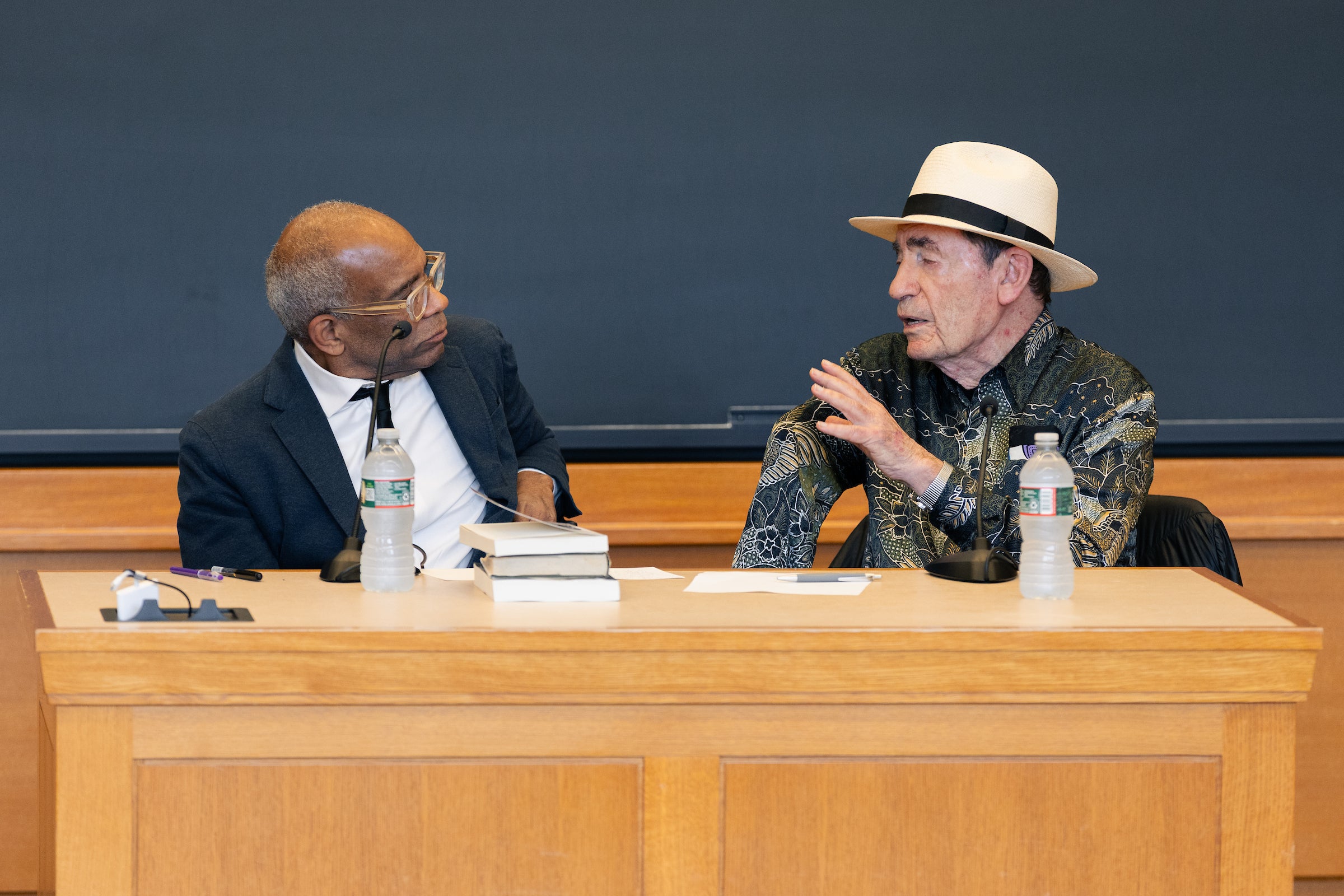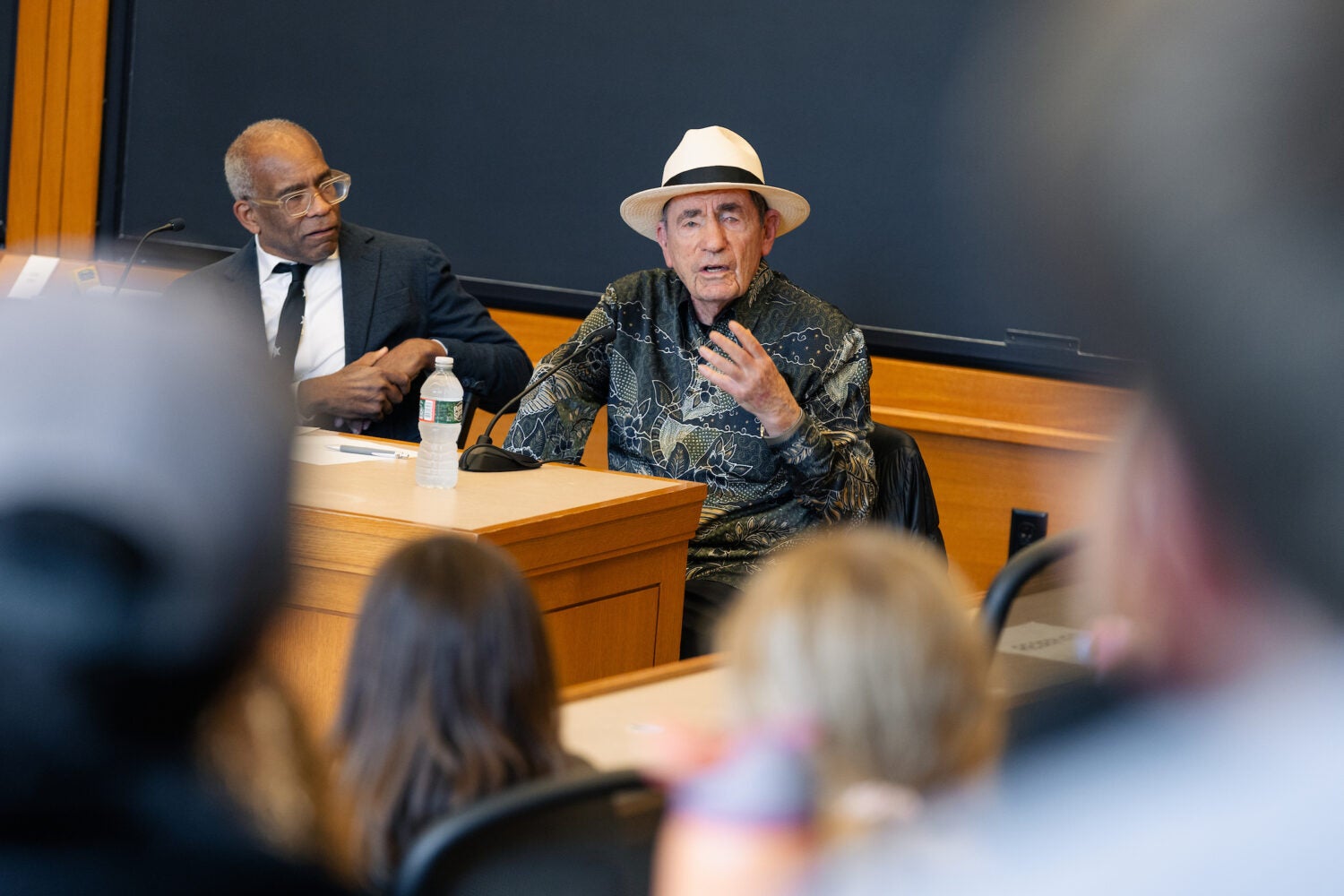When the South African anti-apartheid activist, attorney, and Constitutional Court justice Albie Sachs was first approached by a man who several years earlier had tried to assassinate him in a car bombing, Sachs did not shake his hand. Instead, he encouraged the man to participate in South Africa’s Truth and Reconciliation Commission, which was formed to help the country move beyond decades of human rights violations against Black people.
After the man had done so, Sachs shook his hand.
“I almost fainted,” recalled Sachs, a leading member of South Africa’s African National Congress (ANC) party, who had been targeted by the country’s security forces in the 1988 car bombing. As for the man, “I heard afterwards … he went home and he cried for two weeks. I don’t know if that story is true. I want to believe it’s true … It’s more important that this guy went home and cried, discovering his humanity, than that he goes to jail.”
For Sachs, the handshake response was only possible because of what he calls soft vengeance — a form of justice unique to a country that was seeking to address and move past its painful history rather than prolong it with further violence.
Sachs said that, after the bombing in which he was seriously injured, some of his fellow ANC members promised to “avenge” him. That was never his goal.
“Is that the country we want?” he said he thought at the time. “If we get democracy, if we get freedom, if we get justice for all, the rule of law, that will be my soft vengeance.”
Sachs’ remarks came during an Oct. 22 event sponsored by International Legal Studies, “Justice, Life, and Hope: A Conversation with former South African Constitutional Court Justice Albie Sachs,” during which he talked with Randall L. Kennedy, Harvard Law School’s Michael R. Klein Professor of Law, who has written extensively about race relations.
The 90-year-old Sachs was imprisoned repeatedly, including in solitary confinement. He lost an arm and his vision in one eye in the car bombing, and he lived in exile for many years. Nevertheless, he said he has tried to turn “the negative into positive” throughout his life.
“People speak about my sacrifice,” he said. “For me it wasn’t a sacrifice … The sacrifice would have been to do nothing … I would have been sacrificing my dreams, my sense of humanity, my contact with other people.”

As an attorney, Sachs often represented people accused of violating South Africa’s apartheid laws ensuring racial separation. He was imprisoned and tortured as a political prisoner in the 1960s and lived in exile in England for several years before moving to Mozambique after that country won its independence from Portugal. In 1990, after opposition leader Nelson Mandela was released from prison, Sachs returned to South Africa to help draft the country’s constitution, which has since been a model around the world. He served on the Constitutional Court from 1994 to 2009.
During the event, Kennedy asked Sachs to reflect on his participation as a white man in a Black-led movement.
Sachs recalled an anti-apartheid meeting in 1952 when a friend told him he couldn’t volunteer because he wasn’t Black. Sachs did anyway and said he learned so much from his fellow activists.
As an example, he recounted a time when a crowd of people laughed at him after he spoke out against nuclear proliferation. When he asked a colleague why, the colleague explained, “Comrade Albie, you speak against war. Our people want war. They think if war comes it will bring down the white domination.”
Ultimately, diversity within the anti-apartheid movement was part of its strength, Sachs said.
“We were fighting a system, not a race,” he said. “That is so, so, so vital. Fighting a system means there were Black people on the other side in the system, and there were white people on our side.”
“For me it wasn’t a sacrifice … The sacrifice would have been to do nothing … I would have been sacrificing my dreams, my sense of humanity, my contact with other people.”
Sachs told the packed audience that he came from a family of activists. His mother had been a typist for Moses Kotane, who led South Africa’s Communist Party and was also a leader in the ANC, and she supported Sachs in his efforts. When he was in prison, he said, he sustained himself in part by remembering, “I’ve been imprisoned not for being bad but for being good.”
“That was clear all the way through,” he said.
Sachs said he recently told his grandson that the day he was almost killed was “the happiest day of my life.”
“He said, ‘But Grandpa, you lost your arm,’” he said. “I said, ‘But I only lost an arm, and they tried to kill me.’ And I had a total conviction that, as I got better, my country would get better, and it proved to be right. That’s why I’m so damn optimistic.”
Sachs said people ask him sometimes if anything good ever came from apartheid.
“I don’t know if anybody ever says what is the one good thing slavery did … it’s a horrible kind of question,” he said. “The only good thing apartheid did is it created anti-apartheid.”
Want to stay up to date with Harvard Law Today? Sign up for our weekly newsletter.
